Neurodivergence in the Workplace - a Continuing Professional Development webinar

18 Jul 2023 14:00 - 15:15
This CPD event will look at the intersectionality between neurodivergence and mental health, exploring some of the daily challenges that neurodivergent employees can face - both in the workplace, within their wider communities and beyond – and how that can impact on their mental health and wellbeing.
This session will have a particular focus on ADHD and Arron Hutchinson, Therapeutic Practitioner and Trainer from the ADHD Foundation, will be sharing his own lived experience of how ADHD can impact work and wellbeing, as well as dispelling some common myths around ADHD.
Register here
Arron will also provide attendees with a better understanding and skill to have supportive and safe conversations with their ADHD colleagues about mental health. In particular, he will look at some of the common communication differences for ADHD individuals and discuss how Mental Health Champions, MHFaiders, etc* might want to consider adapting how they offer support to their ADHD colleagues.
*Who should attend?
This event is aimed at those within your organisation who provide wellbeing touch points and support. This can include:
- Mental Health First Aiders
- Wellbeing/Mental Health Champions, Ambassadors or Advocates
- Peer Supporters
- Mentors
- Those in a ‘Buddy System’
- Human Resources professionals
- Co-chairs of mental health networks and others.
Register now to secure your place.
Don't forget to share this event with your colleagues and encourage them to join us to discuss a topic that is particularly relevant right now.
More about neurodivergence in the workplace
Around 20% of employees are likely to be neurodivergent, meaning their brain functions differently in one or more ways than is considered standard or typical. Neurodiverse conditions are used to characterize diverse ways of thinking, learning, processing and behaving and includes conditions such as dyslexia, autism, dyspraxia, ADHD and dyscalculia.
Affecting around 5% of the population, ADHD individuals often have high abilities to innovate and be creative, as well as high energy levels, productivity and the ability to hyperfocus on a problem. However, ADHD can also cause challenges with impulse control, attention, and concentration.
The intersectionality between neurodivergence and mental health is high – research shows that neurodivergent individuals are much more likely to live with mental health difficulties, most commonly anxiety and depression.
This higher incidence can be explained by a range of factors, including exclusion, incidences of bullying and discrimination. Also, workplaces are typically set up for neurotypical ways of thinking and doing. That means neurodivergent employees often spend a lot of time trying to adjust the way they work, behave and communicate to fit in. This can cause immense anxiety and other mental health difficulties.
However, with the right support, workplaces can become a place of psychological safety and reassurance for all employees, by allowing each person to thrive and bring their unique skills and strengths to their work.




